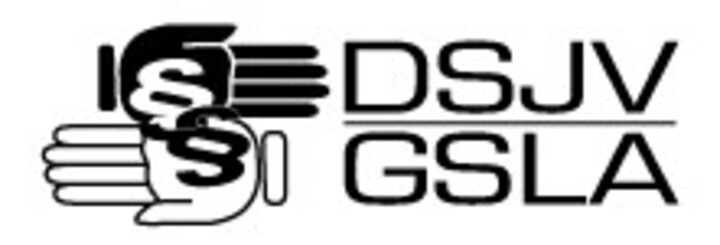Problem Statement
The technological development, which is known as digitization, has already changed the everyday life of people to a considerable extent. And it will increasingly continue to do so. This development challenges the law, which has to find appropriate answers to the questions raised by this new reality. Lawyers already deal with these issues. The most important strand of research in public law follows a human rights approach and focusses on the right to privacy and data protection. Another strand of research concentrates on e-government. Here the focus lies on the relationship between the individual and the state. As the organizers believe that digitization and its effects will not be limited to the individual, its relationship to others and the state, but that it will fundamentally change societies and democracies around the globe, this symposium goes beyond the conventional understanding and asks broader questions: How does digitization affect the democratic state – and not only the individual? What does the democracy of the future look like? Which possibilities and problems arise? Which legal adjustments should be made?
We will approach this field of research in three steps. In a first step, we analyse how digitization affects the constituent elements of the state, namely the people, the territory and state authority, both from a national and an international law perspective (1st panel). In a second step, the challenges and hopes brought by digitization for democracy will be analysed (2ndpanel). Finally, in a third step, the effects of digitization on the social sphere and the individual as well as possible forms of regulation will be examined (3rd panel).
1st panel: Digitization and the State
When assessing the impact of digitization on democracy as a form of government, it is necessary to first analyse its influence on the state. What are the implications of digitization for the constituent elements of the state, namely the people, the territory and state authority? The first phenomena which come to mind when discussing digitization are the rise of internet sites and social networks, the use of Big Data and algorithms. Do these developments result in the increasing fragmentation of “the people” into isolated and opposing groups who endlessly disseminate and multiply their own views? Or does it lead to more uniformity and conformity, precisely because everything is globally available to everyone?
Secondly, the state territory also faces new developments, as physical space is increasingly overtaken by virtual space. Trojans were launched to sabotage the nuclear bomb program in Iran. In Russia, so-called “trolls” paid by the state write online comments, trying to influence internal affairs in modern democracies, without ever crossing physical borders. This raises important questions about the capacity of national and international law to address these issues.
Thirdly, these developments have implications for state power. The power of a state is weakened where influence is exerted over its internal affairs without even entering its territory. The influence of powerful private companies, in particular the internet sector, on opinion formation, may also result in a loss of state power. Is all state authority still derived from the people – or are we governed by algorithms instead? In addition, how do these developments impact on states, which have arguably already been substantially weakened by economic globalization?
With regard to public international law, can the acts of other states be classified as intervention? Since it is only in exceptional circumstances that acts can be classified as passing the threshold of the use of force, the prohibition of intervention plays a prominent role in the context of securing democracy as the prohibition stems from the principle of sovereignty and protects states against outside interference into their internal affairs, including their political system.
2nd panel: Democracy in Times of Digitization
The challenges and hopes for democracy as a form of government will be analysed in this second panel. It is obvious that digitization has influenced society, e.g. how we communicate. However, it is less clear if and how democracy as a form of government is affected and what will result from that. The way in which digitization is valued by the public has changed over the years. During the Arab Spring, digitization was hailed as a vehicle for democracy, which enables the people to express their views and to be heard, and thus allows for collective self-determination. These days, after the Brexit decision and the 2016 US presidential election, the optimistic view is less common.
Pessimists point out that digitization might lead to a fragmented society in which opposing groups become so caught up in their filter bubbles (which are steered by algorithms that are a black box to outsiders and maybe even to the companies that have created them), that they cease to communicate with each other. They further argue that privacy as the basis for self-determination is undermined, and that through cyberattacks, the publication of hacked information, and the spreading of fake news, an undue influence on elections is exerted. By dividing the public via algorithms into small and disconnected entities, the public sphere ceases to exist and with it the “market of opinions”. As a functioning public sphere is necessary for a democracy to function well, democracy, some argue, itself needs to be checked in order to protect the people from themselves. On this view, elements of direct democracy might need to be kept to a minimum in order to counteract the individualistic, centrifugal forces released by digitization. Or do the optimists have a point: does digitization promote, or have the potential to facilitate, deliberative or direct forms of democracy? Alternatively, are we moving towards new forms of democracy that can be described as disruptive democracy? What are the implications of the so-called “hashtag protests” (#BlackLivesMatter, #FeesMustFall, etc.) for democracy? What about liquid democracy?
These developments pose fundamental questions that go to the heart of how we understand democracy and how these understandings are affected by digitization. There are several elements of democracy that seem to be at risk in a digitalized world and are worth being examined more closely: the electorate’s freedom of political will-formation; the openness of democratic discourse; democratic control and accountability; the acceptance of a majority’s decision; pluralism and transparency. This panel provides an opportunity to examine whether and to what extent digitization endangers these understandings of democracy, or provides opportunities to rethink and deepen democratic theory and practice.
3rd panel: Digitization and the Open Society
In this session, we will ask in more concrete terms how to protect the democratic state against the adverse effects of digitization and how to take advantage of digitization for the sake of democracy.
Democracy presupposes the existence of an open society which is characterised by robust public debate about matters of public importance. In such a society, citizens should be well-informed about public issues. They should have access to, and be able to choose between, conflicting perspectives and viewpoints. They should also be able to participate in the processes through which public opinion is formed. Traditionally, the press and other media play an important role in promoting such a diverse and open public sphere. Political parties are also important in ensuring that diverse viewpoints and policies are articulated and debated.
Today, this vision of an open society is confronted by a number of ambiguous developments, many of which are associated with digitization. Firstly, the traditional press is being discredited as a “Pinocchio” press which pursues its own agenda, and social networks have partly taken over the roles of the media. Is this an erosion of the free press as a key element of a democratic society or do we witness the break-down of an oligopoly which possesses no democratic legitimacy? Secondly, traditional political parties have lost support. Does this constitute a danger for democracy or is it just the sign of competition between opposing political ideas and therefore democratic? Thirdly, the use of algorithms and filter techniques and analyses by means of Big Data has become widespread. Are these forms of manipulation which tend to go unnoticed or useful tools which make life easier and allow us to concentrate on the aspects most relevant to us? Finally, we are confronted with the dissemination of extreme, often racist views. Are these signs of increasing social polarisation and exclusion or simply the side-effects of truly free speech, uninhibited by state regulation and private censorship?
These issues raise questions about the role and limits of the law in controlling the undesirable effects of digitization. One such question relates to whether and how the State needs to regulate private actors like Google and Facebook. This needs not only happen via competition laws that aim at regulating market power and that are not concerned with protecting democracy. The so-called “Netzwerkdurchsetzungsgesetz” which has been passed by the German Bundestag and is currently debated in Germany, is a first step to regulate “the internet” in the interest of an open society. Other questions arise: Must we force companies to make their algorithms transparent? Should we restrict freedom of expression for the sake of democracy? Should we even increase the power of social networks when they are obliged to manage the content on their platforms, e.g. by deleting inappropriate/
The conference is kindly supported by:

